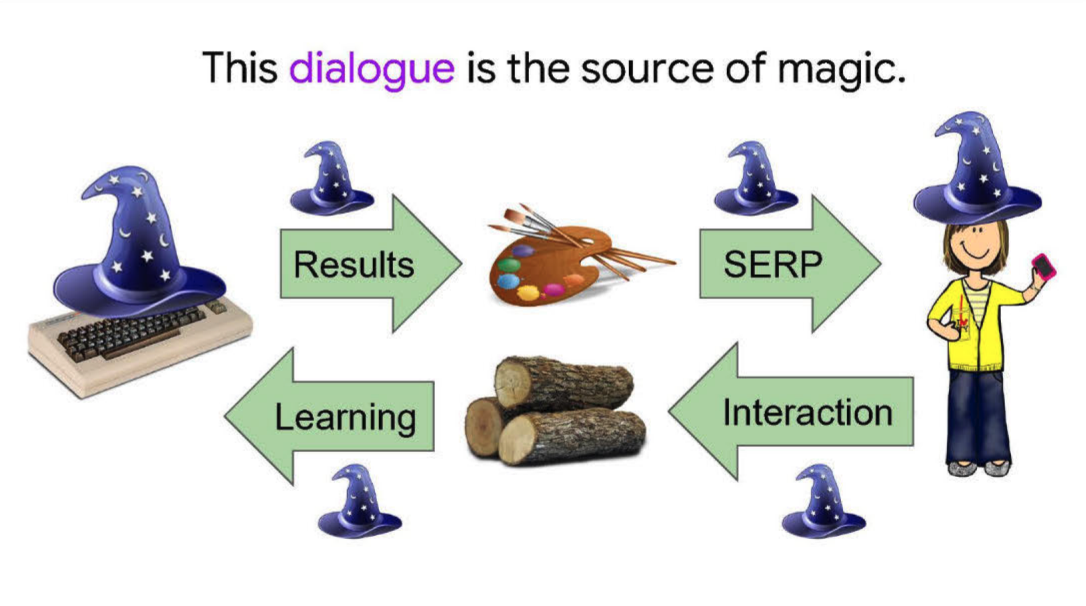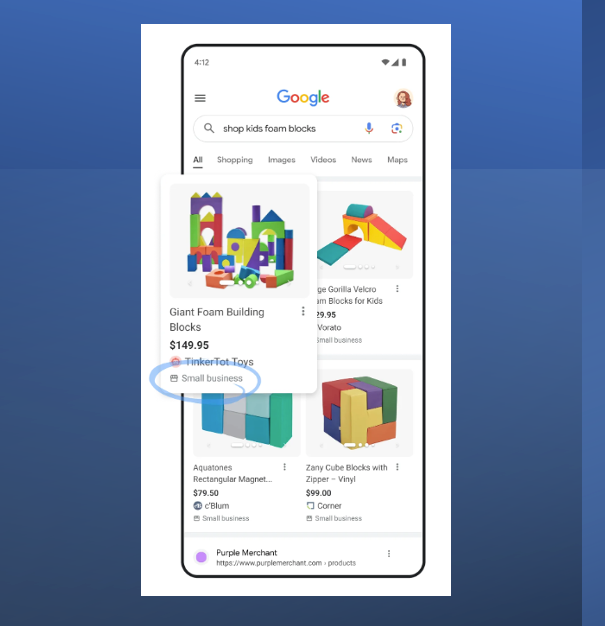GPT vs. Search, Google (Antitrust) Docs, Will the SMB Attribute Help?

GPT vs. Search: Battle of UIs
Google has been "the front door to the internet" since the early 2000s. But a decade from now, perhaps sooner, search (as we currently know it) will likely have been supplanted by AI-based conversational interfaces. You can't watch the OpenAI DevDay keynote (below) and not think we're in the midst of a true paradigm shift. Conversational UIs/GPTs are the future of how people will interact with apps, devices, software and information generally. Search won't go away in the immediate future but virtual assistant-style user experiences will eventually take over. Much remains to be seen and Google is pouring massive resources into AI to remain the dominant "gateway" to information online. But the company is facing an "innovator's dilemma" moment. It must evolve but equally protect (and grow) ad revenues, creating a kind of "structural" challenge. One can easily imagine younger audiences strongly preferring conversational UIs and virtual assistants. If all goes according to OpenAI's plan, GPT-powered experiences will be simpler, more responsive and more personal than the current, overstuffed SERP.
Our take:
- This "conversational UI" future isn't necessarily good news for publishers, but that remains to be seen.
- OpenAI and MSFT have momentum and Google is playing defense. Google's massive resources and market dominance will allow it to remain viable, perhaps well into the future, but you can feel a shift happening.
- Google is now in the position Microsoft occupied in the early 2000s, when the latter was the monopolist and Google was a scrappy, more idealistic company.
What We're Learning from Google (Antitrust) Docs
The Google antitrust trial has been a goldmine of insights into the company's behind the scenes thinking, tactics and business priorities. Discussing a recent tranche of trial exhibits, Search Engine Land points to and summarizes seven interesting ones. Life of a Click (2017, almost totally redacted) and Google Is Magical (2017) once again show that Google used behavioral signals (clicks, swipes, scrolls, etc.) extensively to train itself to understand documents and web content. This has been going on for years, despite Google's public denials. Behavioral signals may not be explicit ranking factors but they're once removed, like quality ratings, and clearly inform rankings. The role of behavioral signals, however, has apparently declined over over time as more sophisticated systems rolled out (e.g., RankBrain, BERT). Interestingly, Google says in one deck, the "bland UI" of 10 blue links made it easier for the company to interpret user behavior than interactions with today's much more complex UI. From Logging & Ranking (2020): "Growing UX complexity makes feedback progressively harder to convert into accurate value judgments." The deck adds, "value judgments are the foundation of Google search." Google's "dialogue" with users (behavioral signals) has arguably been the core of how Google has improved search relevance and quality until comparatively recently.

Our take:
- The trial also revealed Google was threatened by Apple's Spotlight and sought to weaken it; and Google manipulates ad prices and SERPs for more revenue.
- Google's massive "default search" payments strategy ($26B in 2021) appears to have had multiple objectives. Protect and grow revenue is the obvious one.
- Ensure access to user data for behavioral signals is another. A third is: reinforce Google usage vs. competitors. A fourth: deny competitors access to data at scale so they can't become stronger competitors.
Will Google's SMB Attribute Actually Help?
In time for the holidays, along with other shopping tools (e.g., a deal finder), Google has introduced a new "small business" attribute. "Products in Search sold by businesses with that attribute will have a 'small business' label on them, as will businesses on Maps," Google announced. The company says consumers will be able to use it to "narrow down their searches." It's not clear whether it will be a filter or just a badge. Google says it may infer small business status and include the label by default in some cases. The company's definition of "small business" is fairly expansive: not a franchise and <$10 million in revenue. According to survey data from Ascend2 and ConstantContact, "75 percent of retail/e-commerce SMBs rely heavily on holiday sales to meet their annual revenue goals." In addition, "Supporting small businesses and their communities is the number one reason why consumers choose to visit or buy from an SMB." Given that almost all shopping now starts online, consumers need to find SMBs online before they can buy from them (online or off). So this is potentially helpful for everyone. But our question is: will this actually benefit SMBs or is it more of a symbolic move?

Our take:
- Google presents itself as a champion of small business when it's being threatened or attacked in some way. That's part of its playbook.
- To really make this attribute work, it should be a prominent filter in Google Shopping and in the newly appearing local shopping filter. Small business should also be a badge in Shopping Ads.
- Google needs to go all-in on helping SMBs increase visibility in Search, Maps, Shopping. The badge is a start but probably more symbolic than substantive.
Short Takes
- Google blocking new reviews on GBPs where it finds fakes.
- GBP: the new suspension appeal process explained.
- Google adds new "activities" button to hotel profiles on GBP.
- Reddit now the most popular product review domain online.
- Why some restaurants are ignoring/pushing back on reviews.
- AI content detectors getting more specialized and accurate.
- U.S. military personnel data cheaply bought/sold online.
- Meta behavioral targeting banned throughout Europe.
- FTC: Amazon degraded search, showed junk ads to juice revenue.
- Amazon Style is officially dead; it's all about groceries now.
- 43% use social to discover products/services; just 14% buy.
- Once worth $47B, WeWork has filed for bankruptcy (NYT).
- How "networked GPS" can achieve pinpoint location accuracy.
- Nextdoor reports small user and ad revenue gains for Q3.
- Human minders have to help robotaxis every five miles.
Listen to our latest podcast.

How can we make this better? Email us with suggestions and recommendations.

